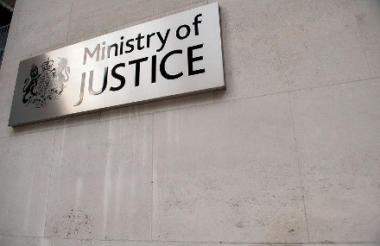The Transforming Rehabilitation programme did not realise the full potential of the third sector and squeezed out smaller charities, a Public Accounts Committee report has said.
The report, which was published today, looks at the government's flagship programme Transforming Rehabilitation and shows that the committee is concerned that the “full potential of the third sector is not being realised”.
It said that the Ministry of Justice claimed to have learned from earlier pilots that the voluntary sector had less capacity than private sector bidders to accept commercial risk, but that it was not evident that this learning was well applied to the community rehabilitation companies (CRC) procurement.
It adds that it is vital that the Ministry and the National Offender Management Service (NOMS) sustain a healthy and diverse supply chain, and acknowledged that “smaller, local voluntary organisations can feel squeezed out by national players”.
The Transforming Rehabilitation programme sees 21 prime providers, mostly large private sector organisations, take on responsibility for probation services for medium and low-risk offenders. They were also responsible for running payment-by-results programmes to reduce reoffending.
The report added that submissions had been received by the committee that raised concerns about how voluntary groups are being managed by CRCs, and the lack of transparency about work opportunities.
It recommended that the ministry and NOMS must “deliver on their commitment to sustain a diverse market of suppliers”. It says it should assess the health of the voluntary sector’s relationships with CRCs and the NPS and use this insight to identify and address gaps in provision and enable smaller providers to contribute more effectively.”
Sector responds
NCVO, in partnership with Clinks and the Third Sector Research Centre, has published a number of reports on this and submitted evidence based on these to the committee.
Nick Davies, public services manager at NCVO, said of today’s report: “When launching Transforming Rehabilitation, the government put the role of the voluntary sector front and centre.
“Yet, as today’s report highlights, the reality is that smaller charities risk being squeezed out.
“The ministry and NOMS must urgently implement the committee’s recommendation to assess the sector’s relationship with probation services and take steps to ensure a diverse market of suppliers.
“Otherwise, as with the Work Programme and countless other services, the danger is that the expertise and capacity of smaller, specialist organisations, particularly in supporting those with the most complex needs, will be lost”
Anne Fox, chief executive of Clinks, which represents voluntary organisations working in criminal justice, said: “We all need our probation services to be the best they can, but right now they appear inconsistent and lacking in real innovation. To revolutionise and transform rehabilitation the voluntary sector’s expertise of working in innovative ways with impressive results needs to be fully involved. However, the Public Accounts Committee has recognised that the full potential of the voluntary sector is not being realised.
“We have also heard concerns about the quality of services being delivered, particularly to people serving short prison sentences and those being offered to women in the justice system. The voluntary sector has solutions to these issues and needs to be central to reforming these services. “
The report also stated that “poor quality communication with the voluntary sector is damaging relations and impeding service improvement”, and that the research also highlighted that “while some services remain unchanged, very few voluntary sector organisations are seeing an improvement in probation services”.
Related articles












